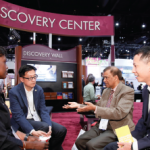Lastly, I hope to bring about inclusion and be a conduit to amplify the voices of those we don’t traditionally hear from. For the last year, I’ve been the chair of the CARE Vision Task Force, and one of the things I’m most proud of has been the diversity of the rheumatology providers that we asked to join us at the table: senior, early-career, researchers, educators, pediatric, community, academicians, APPs, fellows. Every member of that task force brought a fresh, interesting perspective to the task at hand and our final product was made that much richer due to the diverse points of view, experiences and backgrounds. The ACR should be a place where we all can contribute, even if our views differ, and I want to bring that to COIN.
TR: Could you enumerate some of COIN’s projects that are lined up?
Dr. Rolle: We have several amazing projects that we’ll be continuing. One is a focus on bringing rheumatology to underserved Native American populations. It’s an ECHO project in which rheumatologists give telemedicine grand rounds to train family and internal medicine providers where no rheumatologist is available. I participated in a similar program as a fellow and found it quite rewarding.
A second project is a virtual symposium that addresses ways to advance diversity in clinical trials, and a third is hosting trainings for primary care providers, OB/GYNs and pediatricians for uninsured or underinsured patients with rheumatic disease via the non-specialist physician education initiative.
In these efforts, Starla Blanks, Sheryl McCalla and the rest of the COIN team have worked tirelessly to advance the committee’s mandate. I’ve enjoyed working with them and glad I’m able to continue doing so for the next three years.
TR: What other involvement have you had with the ACR?
Dr. Rolle: Besides the aforementioned, I’ve worked as the chair of the Image Library Diversity Task Force, which was given the mandate to increase the images of people of color in the ACR Image Library. When Ellen M. Gravallese, MD, was ACR President in 2020, she set a mandate to make diversity, equity & inclusion (DEI) a part of the ACR’s mission across all standing committees. At that time, two studies pointed out that medical education had a dearth of images of disease in people of color, which was directly contributing to delays in diagnosis and further widening the health disparity gap. This task force was one of the ways the ACR chose to combat this. I’ve also had the honor to work on the Annual Meeting Planning Committee for the last two years, co-chairing the Review Course, which has always been one of my favorite sessions as a clinician educator.


